Part Eighteen. Why study emergency rooms and national security, and China’s dumping and trade war practices?
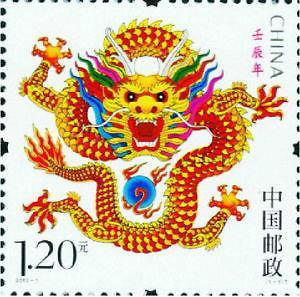 This is Part Eighteen of a series showing how inflation, deflation, barter, tariffs, taxes, postage, war, counterfeiting, history, economics, ‘free’ trade, famine, dearth, climate, auctions, precious metals, religion, and education are combined into one great whole.
This is Part Eighteen of a series showing how inflation, deflation, barter, tariffs, taxes, postage, war, counterfeiting, history, economics, ‘free’ trade, famine, dearth, climate, auctions, precious metals, religion, and education are combined into one great whole.
Part Eighteen. Why study emergency rooms and national security, and China’s dumping and trade war practices?
 Previous parts explained how trade taxes, tariffs, levies or countervailing duties, are a national security matter. This week on the Mark Levine Fox channel show, an economist expressed support for no tariff trade as a boon for American consumers, and that the American tariff or imports was a tax on the American consumers. Sounds simple, free trade, No tariff, free import, no tax. There was no discussion about national security, during the portion I observed.
Previous parts explained how trade taxes, tariffs, levies or countervailing duties, are a national security matter. This week on the Mark Levine Fox channel show, an economist expressed support for no tariff trade as a boon for American consumers, and that the American tariff or imports was a tax on the American consumers. Sounds simple, free trade, No tariff, free import, no tax. There was no discussion about national security, during the portion I observed.
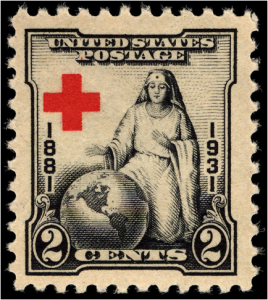 1931 2 cent American Red Cross 50th anniversary
1931 2 cent American Red Cross 50th anniversary
Consider national security as the emergency room for the country. In America we expect the emergency room in a hospital to be open 24 hours a day, seven days a week. The normal labor work week is 40 hours, and any excess is overtime. There are 168 hours in a week, so there are 4 and a tenth labor work weeks which have to be covered for a 24 hour seven day a week staffing. The coverage costs money, and the convenience and expectation for a 24 hour service must be recovered during the peak hours of service, whenever they occur. We know about peak travel time on the commuter routes, when people are traveling to or from work, or to or from resorts, or to or from sports contests.
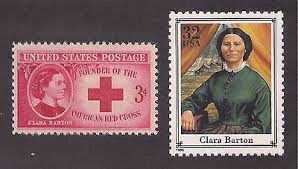 Why have hospital emergency rooms? Some things won’t wait. We need immediate care for many maladies which occur at any time, Kidney stones, car wreck injuries , stroke, sports injuries, dehydration, constipation, eye and nerves, disease, electrocution, poison, child birth, falls, and so forth. The chance of these happening during the Monday through Friday nine to five, is under one in four. We hope we won’t use it, we hope none of our family will use it, but we can sleep better at night knowing the ER is open.
Why have hospital emergency rooms? Some things won’t wait. We need immediate care for many maladies which occur at any time, Kidney stones, car wreck injuries , stroke, sports injuries, dehydration, constipation, eye and nerves, disease, electrocution, poison, child birth, falls, and so forth. The chance of these happening during the Monday through Friday nine to five, is under one in four. We hope we won’t use it, we hope none of our family will use it, but we can sleep better at night knowing the ER is open.
 The national security industries are food, manufacturing, aviation, military, and health. They are the emergency rooms for the country. It may be generations before they are needed, but they must be preserved. For instance, the Confederacy declared war in 1861 without a Navy, armament manufacture industry, steel or other basic industries. The Confederacy hoped to buy and import major portions of its armaments from overseas, but failed because of the North’s embargo and closing the ports. How did that work for you Confederates? Not so much. During World War Two, America’s rubber supply came from Indonesia, which was under Japanese control. America responded with rationing rubber and gasoline, and collecting and recycling old tires. America had the skeleton of steel and basic industries, which human capital – teams, were spooled up in weeks and months. Both in the Great War, and World War Two, America’s enemies could not fathom that the United States could mobilize in sufficient time to affect the war. Many industries were shut down because of the depression. Fortunately, the United States did mobilize and responded to the threat. America had the emergency rooms, to wit – the food, aviation, military, health and manufacturing teams and resources. So the taxes paid to maintain the national security industries , against future threat, are taxes to keep the emergency rooms open, even though it costs more, and we hope not to need them, ever.
The national security industries are food, manufacturing, aviation, military, and health. They are the emergency rooms for the country. It may be generations before they are needed, but they must be preserved. For instance, the Confederacy declared war in 1861 without a Navy, armament manufacture industry, steel or other basic industries. The Confederacy hoped to buy and import major portions of its armaments from overseas, but failed because of the North’s embargo and closing the ports. How did that work for you Confederates? Not so much. During World War Two, America’s rubber supply came from Indonesia, which was under Japanese control. America responded with rationing rubber and gasoline, and collecting and recycling old tires. America had the skeleton of steel and basic industries, which human capital – teams, were spooled up in weeks and months. Both in the Great War, and World War Two, America’s enemies could not fathom that the United States could mobilize in sufficient time to affect the war. Many industries were shut down because of the depression. Fortunately, the United States did mobilize and responded to the threat. America had the emergency rooms, to wit – the food, aviation, military, health and manufacturing teams and resources. So the taxes paid to maintain the national security industries , against future threat, are taxes to keep the emergency rooms open, even though it costs more, and we hope not to need them, ever.
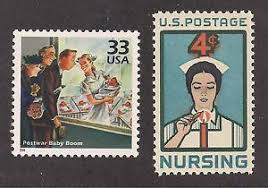 The comparisons about free trade are usually in reference to some mythical level playing field, a reference to sports games. But who has ever seen sports on an unlevel playing field? An uneven field would not help as both teams must roam the fields during a contest. The better analogy is that national security is our emergency room. Free traders miss the long run big picture. Keep the emergency rooms open and operating. Let them practice and rehearse.
The comparisons about free trade are usually in reference to some mythical level playing field, a reference to sports games. But who has ever seen sports on an unlevel playing field? An uneven field would not help as both teams must roam the fields during a contest. The better analogy is that national security is our emergency room. Free traders miss the long run big picture. Keep the emergency rooms open and operating. Let them practice and rehearse.
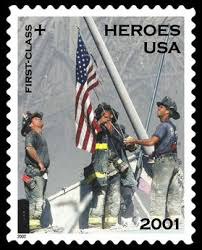 On 911, some hundreds of Navy and Pentagon employees were burned and injured, not counting the hundreds who were murdered. The closest hospitals opened their emergency rooms to receive patients, such as the Northern Virginia Hospital in Arlington, about three miles up the highway. National security and emergency rooms were combined into one great whole.
On 911, some hundreds of Navy and Pentagon employees were burned and injured, not counting the hundreds who were murdered. The closest hospitals opened their emergency rooms to receive patients, such as the Northern Virginia Hospital in Arlington, about three miles up the highway. National security and emergency rooms were combined into one great whole.
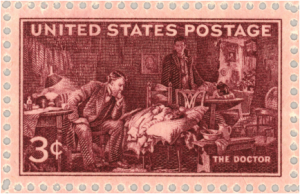 What is the current status of keeping the emergency room national security open? Take a look of the report on China.
What is the current status of keeping the emergency room national security open? Take a look of the report on China.
President Donald J. Trump is Confronting China’s Unfair Trade Policies
ECONOMY & JOBS Issued on: May 29, 2018 
QUOTE
From now on, we expect trading relationships to be fair and to be reciprocal.
President Donald J. Trump
YEARS OF UNFAIR TRADE PRACTICES: China has consistently taken advantage of the American economy with practices that undermine fair and reciprocal trade.
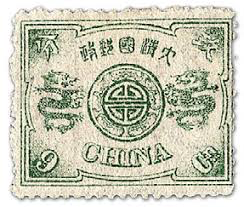 For many years, China has pursued industrial policies and unfair trade practices—including dumping, discriminatory non-tariff barriers, forced technology transfer, over capacity, and industrial subsidies—that champion Chinese firms and make it impossible for many United States firms to compete on a level playing field.
For many years, China has pursued industrial policies and unfair trade practices—including dumping, discriminatory non-tariff barriers, forced technology transfer, over capacity, and industrial subsidies—that champion Chinese firms and make it impossible for many United States firms to compete on a level playing field.- China’s industrial policies, such as its “Made in China 2025” plan, harm companies in the United States and around the world.
- China imposes much higher tariffs on United States exports than the United States imposes on China.
- China’s average tariff rate is nearly three times higher than the average United States rate.
- Certain products are even more imbalanced, for instance the United States charges a 2.5 percent tariff on Chinese cars, while China currently maintains a 25 percent tariff on cars from the United States.
- China has banned imports of United States agricultural products such as poultry, cutting off America’s ranchers and farmers from a major market for their goods.
- China has dumped and unfairly subsidized a range of goods for the United States market, undermining America’s domestic industry.
- In 2018 alone, the Trump Administration has found dumping or unfair subsidies on 13 different products, including steel wheels, cold-drawn mechanical tubing, tool chests and cabinets, forged steel fittings, aluminum foil, rubber bands, cast iron soil pipe and fittings, and large diameter welded pipe.
- In January 2018, the Trump Administration found that China’s overproduction of steel and aluminum, and the resulting impact on global markets, is a circumstance that threatens to impair America’s national security.
- The United States has run a trade in goods deficit with China for years, including a $375 billion deficit in 2017 alone.
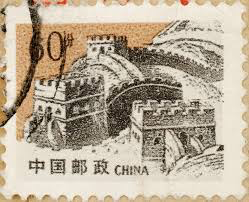
UNDERMINING AMERICAN INNOVATION AND JOBS: China has aggressively sought to obtain technology from American companies and undermine American innovation and creativity.
- The cost of China’s intellectual property theft costs United States innovators billions of dollars a year, and China accounts for 87 percent of counterfeit goods seized coming into the United States.
- United States Trade Representative’s (USTR) Section 301 investigation identified four of China’s aggressive technology policies that put 44 million American technology jobs at risk:
- Forced technology transfer;
- Requiring licensing at less than economic value;
- Chinese state-directed acquisition of sensitive United States technology for strategic purposes; and
- Outright cyber theft.
- China uses foreign ownership restrictions, administrative review, and licensing processes to force or pressure technology transfers from American companies.
- China requires foreign companies that access their New Energy Vehicles market to transfer core technologies and disclose development and manufacturing technology.
- China imposes contractual restrictions on the licensing of intellectual property and technology by foreign firms into China, but does not put the same restrictions on contracts between two Chinese enterprises.
- China directs and facilitates investments in and acquisitions of United States companies to generate large-scale technology transfer.
- China conducts and supports cyber intrusions into United States computer networks to gain access to valuable business information so Chinese companies can copy products.
 STANDING UP TO CHINA’S UNFAIR TRADE PRACTICES: President Trump has taken long overdue action to finally address the source of the problem, China’s unfair trade practices that hurt America’s workers and our innovative industries.
STANDING UP TO CHINA’S UNFAIR TRADE PRACTICES: President Trump has taken long overdue action to finally address the source of the problem, China’s unfair trade practices that hurt America’s workers and our innovative industries.
- In January 2018, the President announced his decision to provide safeguard relief to United States manufacturers injured by surging imports of washing machines and solar products.
- This was the first use of Section 201 of the Trade Act of 1974 to impose tariffs in 16 years.
- These actions responded to injurious trade practices by China and other countries, including attempts to avoid legally imposed antidumping and countervailing duties.
- Following the decision, Whirlpool announced 200 new jobs in Ohio.
- USTR and the Department of Commerce are working together to defend the right of the United States to continue treating China as a non-market economy in antidumping investigations until China makes the reforms it agreed to when it joined the World Trade Organization (WTO).
- President Trump’s Administration has successfully litigated WTO disputes targeting unfair trade practices and upholding our right to enforce United States trade laws.
- In February 2018, USTR won a WTO compliance challenge against China’s unfair antidumping and countervailing duties on United States poultry exports and China announced the termination of those duties.
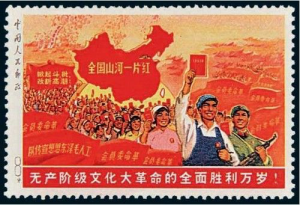 PROTECTING AMERICAN INNOVATION AND CREATIVITY: President Trump has worked to defend America’s intellectual property and proprietary technology from theft and other threats.
PROTECTING AMERICAN INNOVATION AND CREATIVITY: President Trump has worked to defend America’s intellectual property and proprietary technology from theft and other threats.
- In August 2017, the Administration initiated a Section 301 investigation into China’s practices related to forced technology transfer, unfair licensing, and intellectual property policies.
- After USTR completed its Section 301 report in March 2018, the President directed the agencies to explore numerous actions to protect domestic technology and intellectual property.
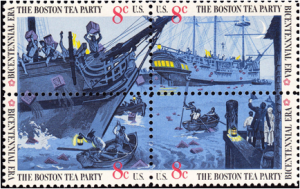
- Under President Trump’s leadership:
- The United States will impose a 25 percent tariff on $50 billion of goods imported from China containing industrially significant technology, including those related to the “Made in China 2025” program. The final list of covered imports will be announced by June 15, 2018.
- USTR will continue WTO dispute settlement against China originally initiated in March to address China’s discriminatory technology licensing requirements.
- The United States will implement specific investment restrictions and enhanced export controls for Chinese persons and entities related to the acquisition of industrially significant technology. The list of restrictions and controls will be announced by June 30, 2018.
Disclaimer: The author of each article published on this web site owns his or her own words. The opinions, beliefs and viewpoints expressed by the various authors and forum participants on this site do not necessarily reflect the opinions, beliefs and viewpoints of Utah Standard News or official policies of the USN and may actually reflect positions that USN actively opposes. No claim in public domain or fair use. © John Choate
Utah Standard News depends on the support of readers like you.
Good Journalism requires time, expertise, passion and money. We know you appreciate the coverage here. Please help us to continue as an alternative news website by becoming a subscriber or making a donation. To learn more about our subscription options or make a donation, click here.
To Advertise on UtahStandardNews.com, please contact us at: ed@utahstandardnews.com.


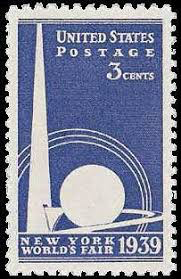
Comments - No Responses to “Part Eighteen. Why study emergency rooms and national security, and China’s dumping and trade war practices?”
Sure is empty down here...